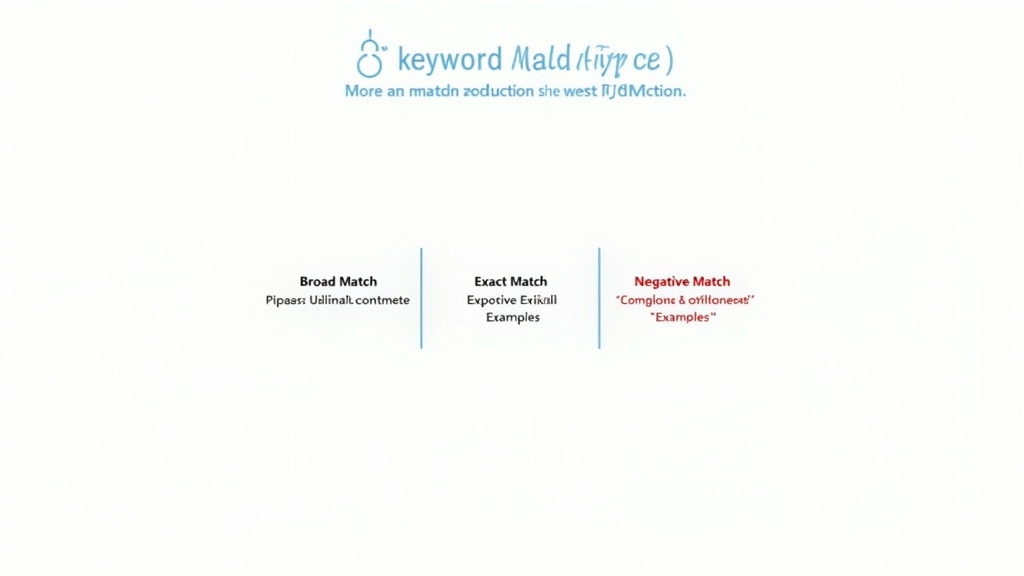Understanding PPC Keyword Match Types for Effective Marketing
Introduction
PPC (Pay-Per-Click) advertising is a powerful tool for businesses looking to attract more customers online. It allows you to display ads on search engines and only pay when someone clicks on your ad. One of the most crucial aspects of successful PPC campaigns is understanding keyword match types. These match types determine how closely a user’s search query must align with your chosen keywords for your ad to appear. By mastering these match types, you can improve your ad targeting, increase click-through rates, and ultimately drive better results from your marketing efforts.
What are PPC Keyword Match Types?
Definition and Purpose
PPC keyword match types define how specific or broad a keyword is in relation to user searches. They help control which searches trigger your ads, allowing you to reach the right audience effectively. The purpose of using different match types is to optimize ad visibility while managing costs.
How They Work in Paid Search Advertising
When you set up a PPC campaign, you select keywords that represent what users might search for when looking for products or services like yours. Each keyword can be assigned a specific match type: broad, phrase, exact, or negative. This selection influences how often and under what circumstances your ads will show up in search results.
Types of PPC Keyword Match Types
Broad Match
Characteristics and Use Cases
Broad match is the default setting that allows your ad to show for any variation of the keyword, including synonyms and related searches. For example, if your keyword is “shoes,” your ad could appear for searches like “running shoes” or “buy footwear.”
Pros and Cons
The main advantage of broad match is its extensive reach; it can capture a wide audience interested in similar topics. However, this can also lead to irrelevant clicks if not monitored closely.
Phrase Match
Characteristics and Use Cases
Phrase match requires that the user’s search query includes the exact phrase you’ve selected but may have additional words before or after it. For instance, if you choose “running shoes,” your ad could show up for “best running shoes” or “buy running shoes online.”
Pros and Cons
Phrase match offers more control than broad match while still reaching potential customers searching with similar phrases. However, it may miss out on some broader variations that could be relevant.
Exact Match
Characteristics and Use Cases
Exact match means that the user’s search query must exactly match the keyword you’ve chosen without any additional words or variations. If you use [running shoes], only searches specifically using those words will trigger your ad.
Pros and Cons
This type provides maximum precision in targeting but limits exposure since fewer queries will meet this strict criterion.
Negative Match
Definition and Importance
Negative keywords prevent ads from showing up in irrelevant searches by excluding certain terms from triggering them. For example, if you’re selling premium sneakers but want to avoid budget options being associated with your brand, you’d add “cheap” as a negative keyword.
Strategies for Implementation
- Regularly review search term reports.
- Identify irrelevant terms.
- Add them as negative keywords to refine targeting further.
How to Choose the Right Keyword Match Type for Your Campaign
Analyzing Business Goals and Objectives
Your choice of keyword match type should align with overall business goals—whether aiming for brand awareness through broader matches or focused sales through exact matches.
Understanding Your Target Audience
Knowing who you’re trying to reach helps determine which keywords will resonate best with them—broad matches may work well during initial stages while refining towards exact matches later on as data accumulates about user behavior.
Best Practices for Using PPC Keyword Match Types
Regular Monitoring and Adjustment
Consistently monitor performance metrics such as click-through rates (CTR) across different keywords; adjust strategies based on what works best over time rather than sticking rigidly with initial choices alone!
Combining Different Match Types
Using a mix of various matching options allows flexibility; combining broad matches with phrase/exact ones enables capturing diverse traffic while maintaining relevance within targeted segments too!
Common Mistakes to Avoid with PPC Keyword Match Types
Misuse of Broad Matches
Over-relying solely on broad matches can lead advertisers into spending money unnecessarily due lack oversight around relevancy issues stemming from unrelated clicks generated by this approach alone!
Ignoring Negative Keywords
Failing at incorporating negative keywords leads directly toward wasted budgets spent attracting uninterested visitors instead focusing resources where they matter most—on genuine prospects likely converting into loyal customers down line!
Conclusion
In summary, understanding PPC keyword match types plays an essential role in optimizing marketing campaigns effectively! By selecting appropriate combinations tailored toward business objectives alongside regular monitoring practices ensures maximizing return investment over time!
With careful consideration given toward each aspect discussed here today—from analyzing goals/audiences through avoiding common pitfalls—you’ll be well-equipped navigate complexities surrounding digital advertising landscape successfully moving forward!
📢 Explore More: Continue Your Journey!
If this article helped you understand PPC better, check out Mastering Ad Copywriting! It covers essential tips on crafting compelling ads that grab attention while driving conversions effectively.














![NEEWER 55W 18"/45cm Ring Light Kit [New Version], 5600K Dimmable ...](https://m.media-amazon.com/images/I/414QLqvZWLL._AC_.jpg)








